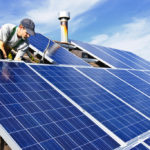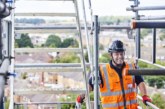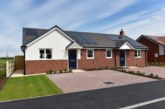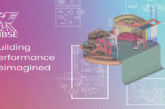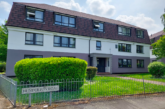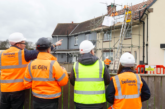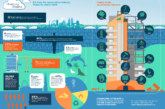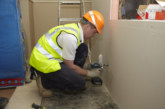Pioneering energy clubs are being created in and around Brixton, south London, to deliver cheap, green electricity to low-income households on pre-payment meters who struggle to afford their power bills. The learning from this project will be used to spread similar energy clubs across the UK, potentially helping hundreds of thousands of people.
A partnership of charities and energy experts will soon start searching for 60 vulnerable households to join the two new Energy Local clubs. Residents will join a club to receive cheaper power from solar panels if they use the power when the panels are operating. The solar panels are already installed on the Roupell Park Estate on Brixton Hill.
The initiative is led by international sustainability charity Bioregional, based in the BedZED ecovillage in Sutton, South London. Key partners include Energy Local, the not-for-profit organisation promoting Energy Local Clubs in the UK, and Repowering London, which develops community-based solar power projects in the capital.
The aim is to tackle fuel poverty while increasing local consumption of locally-generated, zero-carbon solar power. Until now these opportunities have only been available to those on credit meters. This project aims to extend Energy Local Clubs to those on prepayment meters.
Normally when solar panels generate more power than can be used in the communal areas of a block of flats or in a single home, the surplus electricity is purchased by an electricity supplier. This surplus solar power is then sold on to consumers everywhere, with a big mark up on the price.
Energy Local clubs exploit this gap, benefitting both local solar generators and households living nearby. They local electricity consumers who join the club match their use with nearby solar electricity generators. The generators can get a better price for their surplus solar power, while the consumers get some of their electricity at a lower price compared to an ordinary tariff.
One thing that makes this matching possible is smart meters, which measure precisely when electricity is being generated and used as well as how much. They enable the exports of surplus solar power to be exactly matched with electricity consumption by members of the club. Energy Local makes the necessary agreements covering finances, laws and regulations and data communications with the electricity industry.
To include those on prepayment meters, new technology and process are required. Whilst these are being developed Bioregional and Repowering London will be developing materials to reach people who are most isolated and excluded.
Pioneering model
Bioregional CEO Sue Riddlestone OBE said: “The Energy Local model is truly pioneering in allowing local people to access renewable power in their area at a lower price. It’s helping to raise demand for rooftop solar and to bring power back into the hands of communities. We have been working with Energy Local for many years to explore how we can push its innovative model further — to drive the set-up of new clubs and allow those on pre-payment meters to take part. These funds will allow the team to develop the technology and tools necessary so that the model can benefit communities most in need.”
Energy Local clubs are still in their infancy. The main aim of the £335,000 Brixton project, funded by the Energy Saving Trust under Ofgem’s Energy Redress scheme, is to trial the concept with people on low incomes in rented homes who are also on prepayment electricity meters. There are nearly six million people living in UK households with prepayment meters. They often face higher prices than those paying bills on a credit basis.
Mary Gillie of Energy Local said: “This is a great opportunity to develop the technology to include those in danger of fuel poverty and make Energy Local even more inclusive.”
The plan is to set up two energy clubs, one of 30 homes in the Roupell Park estate and another with 30 social housing homes somewhere else in London or the south-east.
Roupell Park is a Lambeth Council estate of 573 flats run by its own tenant management organisation. The estate has photovoltaic arrays with 52.5 kW peak capacity installed by Repowering London.
The search for Energy Local club members in Brixton has already started. The plan is to give all participating households a web-based dashboard where they can track their hour-to-hour electricity use, and its cost, using a mobile phone, tablet or laptop.
Building on this project, the partners hope to use a network of trained facilitators to establish 50 new Energy Local clubs in the next five years, reaching up to 50,000 households.
Image ©Elenathewise/AdobeStock.

